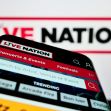The Department of Justice (DOJ) sued JetBlue Airways Corporation (JetBlue) to block a $3.8 billion acquisition. Working jointly with the State of New York and the District of Columbia, the DOJ filed a civil anti-lawsuit against JetBlue that aims to bar the purchase of the company’s rival, Spirit Airlines. The complaint was filed in the U.S. District Court of Massachusetts, and under Section 7 of the Clayton Act, seeks to block JetBlue’s acquisition.
Regulators said the move is to stop JetBlue’s attempt to buy its largest rival, also famous for low-cost flights. Spirit is the fasting growing and largest competitor to JetBlue, and the DOJ said that an acquisition of Spirt by JetBlue would lead to the elimination of its biggest competitor.
This is the first time in twenty years the government has sued to block a US airline merger. Meanwhile, over the same period, the DOJ allowed five airline mergers and did not resort to a lawsuit like the complaint lodged against JetBlue last week. Those airlines now comprise 80 percent of the US air traffic. The five prior mergers transformed nine US airlines into four: Delta Airlines, American Airlines, United Airlines and Southwest Airlines.
The court documents claim that by allowing JetBlue to acquire Spirit, the entire airline industry would be further “concentrated” and that American travelers would be “harmed.”
“As our complaint alleges, the merger of JetBlue and Spirit would result in higher fares and fewer choices for tens of millions of travelers, with the greatest impact felt by those who rely on what are known as ultra-low-cost carriers in order to fly,” said Attorney General Merrick B. Garland. “Companies in every industry should understand by now that this Justice Department will not hesitate to enforce our antitrust laws and protect American consumers.”
Antitrust regulators allege the sale would impact millions of travelers and severely impact many hundreds of flight routes across the US. The civil complaint claims the proposed JetBlue acquisition of Spirt would lead to “increased fares and reduce choice on routes across the country, raising costs for the flying public and harming cost-conscious fliers most acutely.”
Currently, there is a fierce airline ticket battle in the airline industry, with giants such as JetBlue and Spirit fighting tooth and nail to sell the most, least expensive tickets to travelers. The suit claims that JetBlue, if it purchases Spirit, would not only dramatically reduce the competition in the airline industry, but also lead to higher costs for fliers seeking the best prices possible.
Specifically, the court documents claim that the famous “Spirit Effect” of offering lower or the lowest pricing of airline tickets plus the most options for travel, would disappear under the ownership of JetBlue. In the airline industry, the “Spirit Effect” is used to describe the powerful effect Spirt has upon all other airlines, since its ticket prices are lower than its competitors, leading them to match their low prices to ticket-holders.
The DOJ said the sale would “eliminate half of the ultra-low-cost capacity in the United States. This will lead to higher fares and fewer seats, harming millions of consumers on hundreds of routes.”
The DOJ characterized Spirit as a “disruptive force” that offers “innovative products, allowing customers to choose which services to purchase, all while charging customers very low fares.”
Spirit has doubled its size and network over the past decade and is still growing faster than any other US airline. Spirit is a Delaware corporation headquartered in Miramar, Florida. The DOJ reported in a statement that, “In 2022, it flew over 38 million passengers to approximately 92 destinations in the Americas, earning about $5 billion in revenue.”
JetBlue, the DOJ statement added, “is a Delaware corporation headquartered in Long Island City, New York. In 2022, it flew over 39 million passengers to approximately 107 destinations around the world, earning about $9.1 billion in revenue.”
Specifically, the lawsuit notes, the proposed JetBlue purchase of Spirit would be “presumptively anticompetitive,” since the two firms share more than forty direct routes.
JetBlue released a statement, saying, "The combination of JetBlue and Spirit plus the rapid growth of ultra low cost carriers will assure increased competition and low fares.”
“Our complaint alleges that JetBlue’s acquisition of Spirit would particularly hurt cost-conscious travelers,” said Associate Attorney General Vanita Gupta. “Ultra-low-cost carriers make air travel possible so more Americans can take a much-needed family vacation or celebrate or mourn together with loved ones. We allege that the proposed merger would lead to fewer seats and higher prices for travelers.”
DOJ Principal Deputy Assistant Attorney General Doha Mekki of the Justice Department's Antitrust Division agreed. “JetBlue’s proposed acquisition of Spirit eliminates a disruptive, low-cost option for millions of Americans. Whether they fly Spirit or not, travelers throughout the United States benefit from an independent Spirit because where Spirit competes, other airlines – including JetBlue – are forced to compete more vigorously by lowering fares, offering greater innovations, and delivering more consumer choice.”
JetBlue CEO Robin Hayes disagrees with the complaint, saying the merger is necessary for flyers.
"We believe the DOJ has got it wrong on the law here and misses the point that this merger will create a national low-fare, high-quality competitor to the Big Four carriers which -- thanks to their own DOJ-approved mergers -- control about 80% of the US market," said Hayes. "There is too much at stake for the DOJ to prevent us from bringing the JetBlue difference to more customers in more markets."






